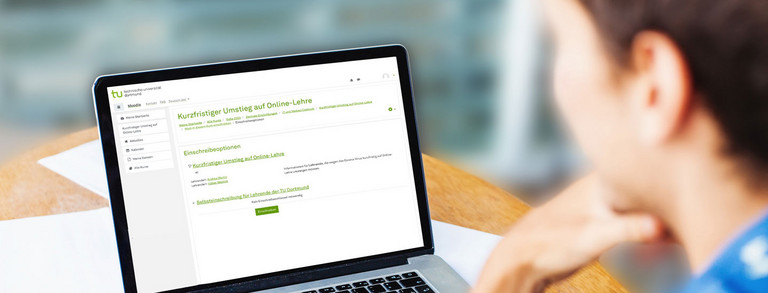New chief engineer at ITL
- News
- News
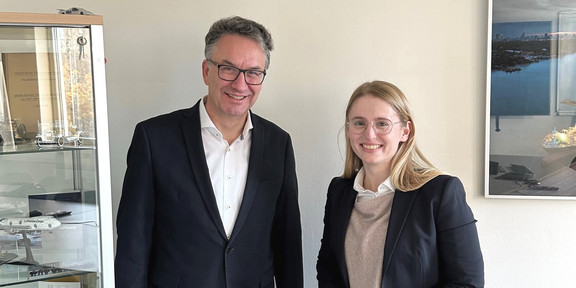
Prof. Dr.-Ing. Uwe Clausen remembers well the time when Christin Schumacher started as a student assistant at the Institute of Transportation Logistics. From 2014 - 2016 she accompanied the mathematical optimization team and now returns to the ITL after 6 years as a senior engineer. In the course of her introduction, she answers some questions for Alexander Gehl.
Hello Christin, you've been at ITL for almost three months now as the new chief engineer. Have you settled in well?
The team at ITL is great, you can only settle in well. Especially through the many activities that have traditionally taken place at ITL in the run-up to Christmas, such as the Christmas party, the board meeting and the Christmas breakfast, I was able to get to know the team quickly and settle in well. In terms of content, I was also able to gain insights into ongoing research projects and planned applications. It is super exciting for me to be able to deal with such a wide range of research topics.
You were already here at the ITL for 2 years as a student assistant. Has much changed during your absence in the last 6 years?
Naturally, a lot has changed in terms of personnel. I still know Prof. Clausen and Ms. Mattner from my time here. Apart from that, it was a great advantage that I had already worked here for some time. This meant that I already knew the topics and methods being worked with, which made it somewhat easier for me to get started. Even though the team is almost completely new, the good mentality and the great team spirit have not changed. The team is very open and, thanks to flat hierarchies, I notice that there is also harmonious cooperation between student assistants and research assistants.
That's right, this togetherness is also something I really appreciate about the ITL...
The development towards managers who see themselves as coaches and mentors can currently be seen everywhere in the working world, but new developments in leadership culture can be tried out together particularly quickly in research. This is mainly due to the young and innovative teams, which are a particularly valuable feature of science for me.
After your master's thesis, you worked as a research assistant at the Faculty of Computer Science, where you also wrote your dissertation. How well do the two fields of computer science and transport logistics harmonize?
Computer science is absolutely fundamental for current transport logistics, just as it is for the production sector, which is already clear from the developments Industry 4.0 and Logistics 4.0. In the subject areas, it is precisely this networking of machines with IT systems that is being pursued, and interdisciplinary work, especially with computer science, will become even more important in the future.
Due to the fact that I did my doctorate in the research training group "Adaptive Intelligence of Factories", this interface has been part of my research area for a long time. The main difference between the two fields is that logistics is more application-oriented and orchestrates the appropriate solution methods depending on the problem, while computer science continues to develop the special methods. As a result, the two fields complement each other very well.
Was this change from computer science to transport logistics planned, especially in view of the fact that you were already able to gain initial experience in transport logistics?
I hadn't decided on a specific subject area. The most important thing for me was that I enjoyed my work. Since I already knew what to expect in transport logistics and that I felt comfortable in this field, returning was always an option.
At the time, I applied to the Research Training Group with the idea of continuing to do research in logistics and production. That it then became computer science in combination with production and logistics was an equally nice, but actually not immediately trivial turn of events after my studies in business mathematics. Today, I am very grateful for the opportunity to work in both fields and for the fact that I am able to conduct very application-oriented and methodologically sound research.
Did you always intend to stay in research and teaching, or was a job in industry also an option?
It was always possible to do both. On the one hand, it quickly became clear during my studies that I really enjoy scientific work. So a doctoral position was always an option I considered. On the other hand, I always wanted to work in an application-oriented way. Now I have both.
At the ITL, application-oriented research and work is carried out right from the start with practical partners from the transport industry, which is particularly fun in combination. After completing my doctorate, it was clear to me at some point that I would like to work in research again without working on my dissertation in parallel. The main reason for this is that you can then be a bit freer in research without having the dissertation behind you.
And we are all very happy about that at the ITL!
Finally, a slightly different question: Dortmund is an absolute soccer city, BVB is omnipresent here. Of course, this quickly raises the question of whether you yourself are a soccer fan and, if so, which club your heart beats for.
I grew up on the border between Gelsenkirchen and Bochum, and I had a Gelsenkirchen license plate for a long time, which I then used to move to Dortmund. Shortly thereafter, I accidentally drove through the middle of Dortmund's championship celebration with this Gelsenkirchen license plate, which of course didn't go down very well.
I am definitely interested in sports, but I have to say that I never was and never will be a soccer fan, although my school friends would throw their hands up in horror. I used to enjoy watching Bayern. However, I've been to both Schalke and the Westfalenstadion, and I'm also up for more visits to BVB.
That's good news with which I would also like to end the interview. Thank you very much for the nice conversation.




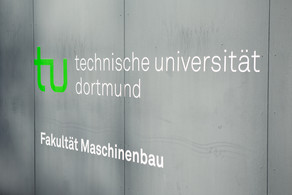
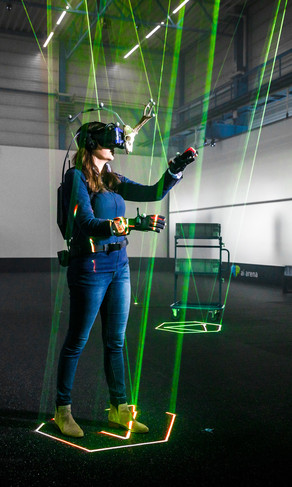
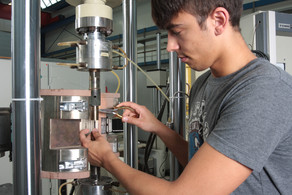
![[Translate to English:] [Translate to English:]](/storages/zentraler_bilderpool/_processed_/c/6/csm_Internationale_Studierende_aus_Ecuador_e279fecff6.jpg)
